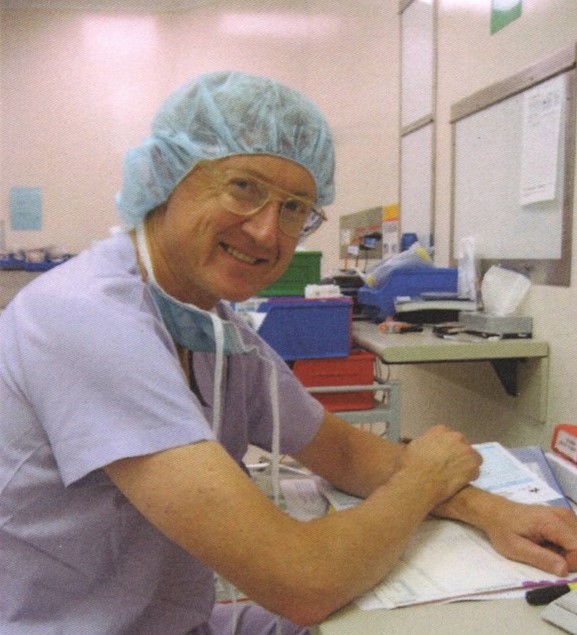
Flinders University Medicine graduate, Emeritus Professor David Wattchow (BMBS ’80, PhD(Med) ’89, CUniv ’16) is a university donor, member of the Clinical Advisory Group (CAG) and was an esteemed Senior Consultant Surgeon in Flinders Medical Centre (FMC). His special relationship with Flinders was recognised with a Companion of the University in 2016.
We thank David for his extensive contributions to teaching Flinders medical students over the decades. He retells the history of Flinders from his perspective in his autobiography As The Twig Is Bent So Grows The Tree
How long have you been involved with the Flinders medical course?
50 years – I started in the first intake in 1974.
When you first became involved with the Flinders medical course, what initial impressions made you proud?
My initial impression was of the novelty of the whole course and the enthusiasm of the teachers. We were only to learn later it was one of very few institutions in the world where clinical care and university are under the one roof. This was the vision of the founding Dean, Gus Fraenkel i.e. that roles would combine teaching , clinical care and research and that all areas were intertwined. This concept was novel, but is now being realised worldwide.
What do you enjoy most about your role/s in the Flinders medical course?
I was involved at every stage – from being a first year student (at age 17!) through to registrar years then as a consultant. I was by then teaching students so the wheel had turned full circle. I taught in the Anatomy museum, in the tutorial rooms (when PBLs started), on the wards and in the operating theatre.
Tell us about a peak experience or high point with the Flinders medical course. This would be a time when you felt most alive, most engaged, or really proud of yourself or your work. What was it about you, the situation, the organisation, and the leadership that allowed that peak experience to emerge?
As a student in the course we were really encouraged to seek clinical experience. I well remember the thrill of suturing wounds in the ED. Later to come was the thrill of discovery. With my colleagues in Human Physiology we embarked upon the mapping of the human enteric nervous system. This involved taking samples of bowel removed at surgery, dissecting the sample and tracing the nerve pathways (this method was developed by Professor Simon Brookes). This was the first time in the world this had been achieved but I still didn’t realise the significance of it all at the time.
What do you value most about yourself, your work, and your contribution to the Flinders medical course?
We had a lot of maturing to do but all found their niche and have contributed to society. At the end of the day it is the patients that were the focus of benefit. I valued involvement with the course and teaching the students.
When have you most felt like your work was part of a positive force in the world, when you felt an alignment among your principles, purpose, and practices? Tell a story about what you were doing.
We were the world leaders in the investigation of the human enteric nervous system. I came to appreciate this when I took that knowledge overseas to London , New York etc where it was truly understood and valued. It did not matter that it was undertaken in this remote southern continent. It just happened at Flinders – but it did not “just” happen. It was a wonderful collusion of youth and enthusiasm and understanding.
Share your reflections, or nominate a colleague for an appreciation post
Responses are encouraged from all academic and professional staff, Academic Status holders, clinicians and educators contributing to the Flinders MD.
- Share your reflections: Complete and submit this online questionnaire
- Prefer to respond via email? Send clinicians@flinders.edu.au your photo and reflections and/or responses to these questions:
- How long have you been involved with the Flinders medical course?
- When you first became involved with the Flinders medical course, what initial impressions made you proud?
- What do you enjoy most about your role/s in the Flinders medical course?
- Tell us about a peak experience or high point with the Flinders medical course. This would be a time when you felt most alive, most engaged, or really proud of yourself or your work. What was it about you, the situation, the organisation, and the leadership that allowed that peak experience to emerge?
- What do you value most about yourself, your work, and your contribution to the Flinders medical course?
- When have you most felt like your work was part of a positive force in the world, when you felt an alignment among your principles, purpose, and practices? Tell a story about what you were doing.

